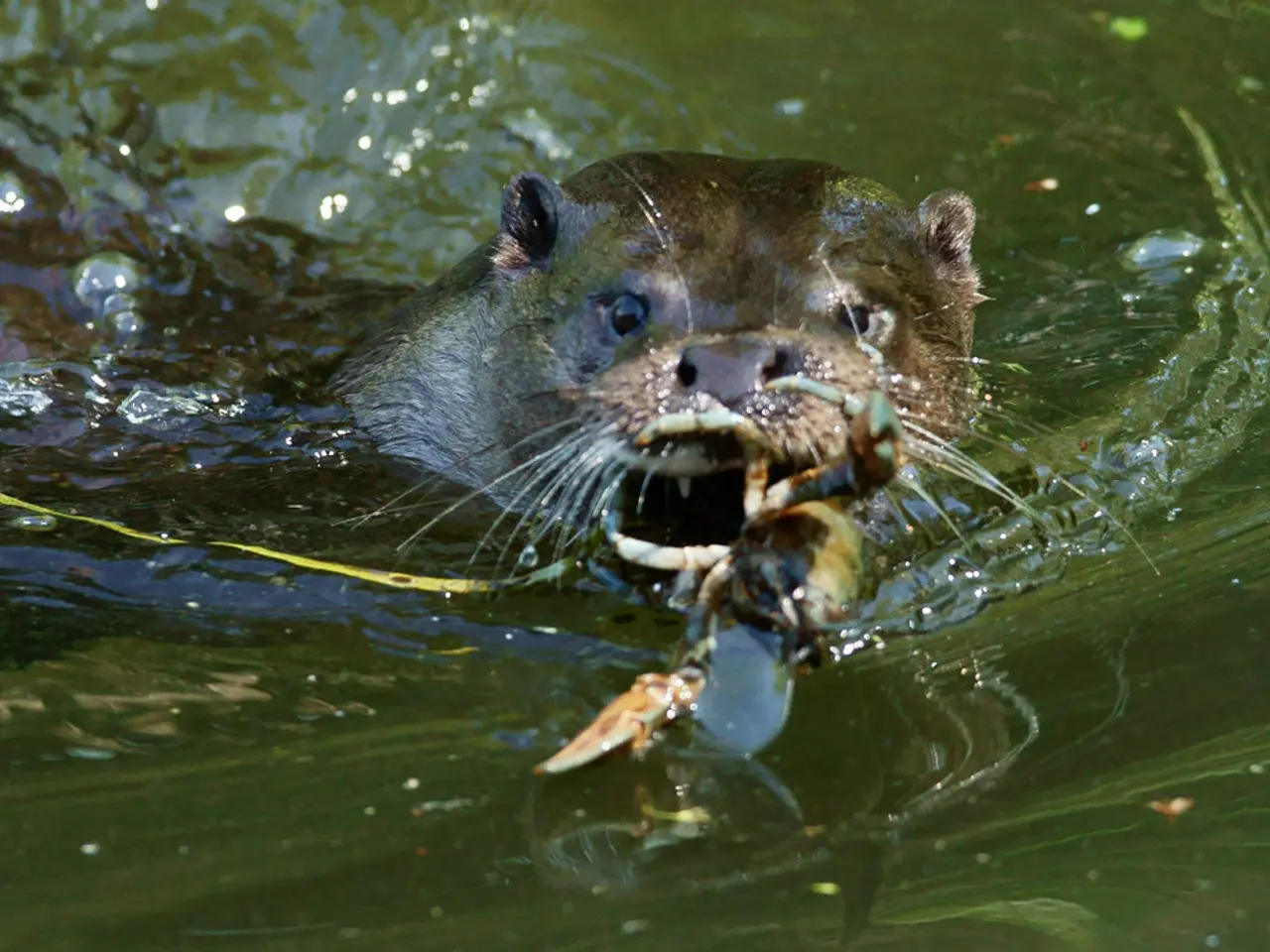Exploring the Intellectual Capacity of Crabs: Investigating the Cognitive Skills of Crustaceans
==========================================================
In a surprising turn of events, research has revealed that crabs are not the simple creatures once thought. Contrary to popular belief, these marine invertebrates exhibit behaviours that indicate learning, problem-solving, and social awareness, challenging the assumption that they are low on the cognitive ladder.
The strongest documented evidence for this comes from experiments on hermit crabs, which demonstrate their capacity to perform rudimentary decision-making by weighing costs and benefits. For instance, when hermit crabs are given a small electric shock inside their shells, they calculate the trade-off between pain (cost) and shell safety or comfort (benefit), resembling basic forms of deliberation or problem-solving. This suggests that hermit crabs can integrate sensory and affective information to make adaptive choices, indicating a level of behavioural sophistication.
Beyond hermit crabs, other crab species like true crabs and king crabs also exhibit evolutionary convergences in morphology and neural systems that may support their cognitive capabilities. However, direct experimental evidence on problem-solving in these species is less documented or highlighted in current research.
The habitat a crab occupies can significantly influence its cognitive development. Crabs living in complex environments show more advanced cognitive abilities. These crustaceans communicate using a variety of signals, requiring an understanding and response to social cues.
Studies have shown that crabs can learn to associate specific cues with rewards or punishments, demonstrating associative learning. They can remember these learned associations for extended periods, with some species exhibiting memory retention for days or even weeks after the initial learning phase. Crabs have the ability to learn and modify their behaviour based on experience, a key indicator of intelligence.
Crabs can avoid specific locations or stimuli that have previously been associated with a negative experience, demonstrating avoidance learning and long-term memory. Different crab species have evolved different cognitive abilities, reflecting their specific ecological niches and lifestyles.
Some species of crabs have been observed using tools to access food or defend themselves, requiring planning and an understanding of the tool's function. This question of whether crabs experience pain is a subject of ongoing debate, but studies have shown that crabs respond to noxious stimuli with behaviours that suggest they are experiencing pain or discomfort.
The order Decapoda, including crabs, lobsters, shrimp, and prawns, is a focus of studies investigating invertebrate intelligence. Given the evidence suggesting that crabs are capable of experiencing pain and suffering, it's important to consider their welfare in various contexts, including fishing, aquaculture, and scientific research. Implementing humane handling and slaughter practices can help minimize their suffering.
Studying crab intelligence raises important ethical considerations, including ensuring that experimental procedures do not cause unnecessary harm or suffering, considering the potential impact of research on crab populations, and following ethical guidelines and regulations to ensure that research is conducted responsibly and sustainably.
In conclusion, crabs exhibit a surprising capacity for learning and memory. Research has demonstrated that they can learn to navigate mazes, solve simple problems to obtain food, and even associate specific colours or patterns with rewards or punishments. These findings challenge the traditional view of crabs as simple creatures and open up new avenues for research into invertebrate intelligence.
- The revelation of crabs' cognitive abilities extends beyond scientific circles, influencing various aspects of health and wellness, lifestyle, and education and self-development.
- The field of environmental science, particularly the study of marine ecosystems, gains new depth with the understanding that crabs have evolved cognitive skills to adapt to their surroundings.
- In the realm of medical-conditions and health-and-wellness, studies on the cognitive abilities of crabs provide valuable insights into neurological disorders in humans, nurturing scientific research and technological advancements.
- As the study of space and astronomy broadens our understanding of the universe, the discovery that crabs possess a level of problem-solving and learning ability adds to the intrigue of the natural world, deepening our connection to the planet and our place within it.




